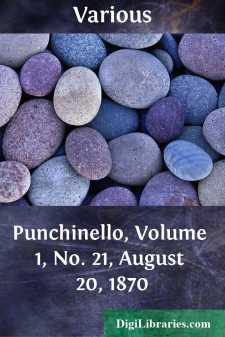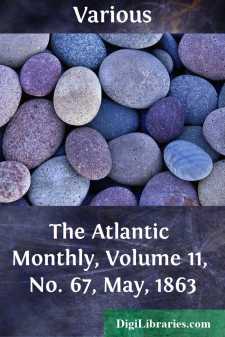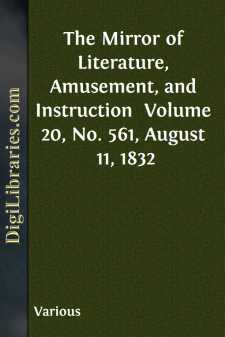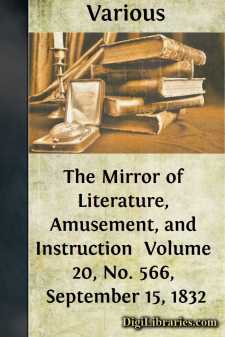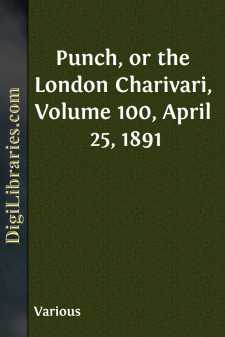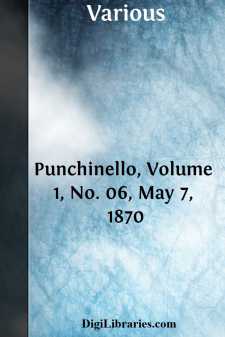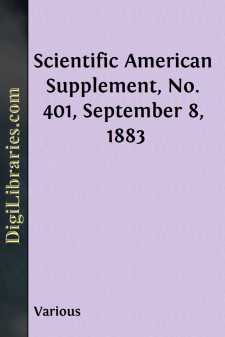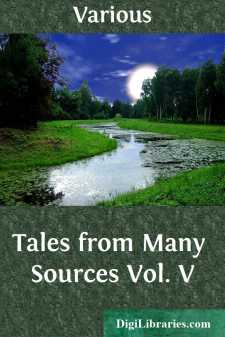Categories
- Antiques & Collectibles 13
- Architecture 36
- Art 48
- Bibles 22
- Biography & Autobiography 813
- Body, Mind & Spirit 142
- Business & Economics 28
- Children's Books 17
- Children's Fiction 14
- Computers 4
- Cooking 94
- Crafts & Hobbies 4
- Drama 346
- Education 46
- Family & Relationships 57
- Fiction 11829
- Games 19
- Gardening 17
- Health & Fitness 34
- History 1377
- House & Home 1
- Humor 147
- Juvenile Fiction 1873
- Juvenile Nonfiction 202
- Language Arts & Disciplines 88
- Law 16
- Literary Collections 686
- Literary Criticism 179
- Mathematics 13
- Medical 41
- Music 40
- Nature 179
- Non-Classifiable 1768
- Performing Arts 7
- Periodicals 1453
- Philosophy 64
- Photography 2
- Poetry 896
- Political Science 203
- Psychology 42
- Reference 154
- Religion 513
- Science 126
- Self-Help 84
- Social Science 81
- Sports & Recreation 34
- Study Aids 3
- Technology & Engineering 59
- Transportation 23
- Travel 463
- True Crime 29
Sort by:
by:
Various
The MYSTERY OF MR. E. DROOD. AN ADAPTATION. BY ORPHEUS C. KERR. CHAPTER XIV. CLOVES FOR THREE. Christmas Eve in Bumsteadville. Christmas Eve all over the world, but especially where the English language is spoken. No sooner does the first facetious star wink upon this Eve, than all the English-speaking millions of this Boston-crowned earth begin casting off their hatreds, meannesses, uncharities, and...
more...
by:
Various
I. What Southey says of Cottle's shop is true of the little bookstore in a certain old town of New England, which I used to frequent years ago, and where I got my first peep into Chaucer, and Spenser, and Fuller, and Sir Thomas Browne, and other renowned old authors, from whom I now derive so much pleasure and solacement. 'Twas a place where sundry lovers of good books used to meet and...
more...
by:
Various
BURNHAM ABBEYBURNHAM ABBEY, From a Sketch, by a Correspondent.Burnham is a village of some consideration, in Buckinghamshire, and gives name to a deanery and hundred. Its prosperity has been also augmented by the privilege of holding three fairs annually. It is situate in the picturesque vicinity of Windsor, about five miles from that town, and three miles N.E. of Maidenhead. It was anciently a place...
more...
by:
Various
BOLSOVER CASTLE Bolsover is a populous village on the eastern verge of Derbyshire upon the adjacent county of Nottingham; and but a short distance from the town of Chesterfield. The Castle occupies the plain of a rocky hill that rises abruptly from the meadows. The building is of great extent, and, from its elevated situation, it is a landmark for the surrounding country. Bolsover has been the site of...
more...
by:
Various
AN AMERICAN IN THE HOUSE OF LORDS. Having in a former number of this magazine attempted to give some account of the House of Commons, and to present some sketches of its leading members, I now design to introduce my readers to the House of Lords. Atlantic Monthly for December, 1861. It is obviously unnecessary to repeat so much of the previous description as applies to the general external and internal...
more...
by:
Various
ACT I.SCENE—A Sitting-room cheerfully decorated in dark colours. Broad doorway, hung with black crape, in the wall at back, leading to a back Drawing-room, in which, above a sofa in black horsehair, hangs a posthumous portrait of the lateGeneral GABLER.On the piano is a handsome pall. Through the glass panes of the back Drawing-room window are seen a dead wall and a cemetery. Settees, sofas, chairs,...
more...
by:
Various
"WHY NOT LIVE OUT OF LONDON?" SIR,—Capital subject recently started Daily Telegraph, with the above title. Just what I've been saying to my wife for years past. "Why don't you and the family live out of London," I have asked. And she has invariably replied, "Oh, yes, and what would you be doing in London?" I impress upon her that being the "bread-winner"...
more...
by:
Various
THE DELIGHTS OF DOUGHERTY. At the Banquet of the Army of the Potomac in Philadelphia, Mr. DANIEL DOUGHERTY made one of the most extraordinary speeches on record, if we except certain forensic efforts of Mr. PUNCHINELLO delivered during the earlier stages of his career from his box. Mr. DOUGHERTY is a Soarer, and a Spreader, and a Screamer. Speaking metaphorically, be goes higher, measures more from the...
more...
by:
Various
MONUMENT TO CHRISTOPHER COLUMBUS, AT BARCELONA, SPAIN. The cultivated and patriotic city of Barcelona is about to erect a magnificent monument in honor of Columbus, the personage most distinguished in the historic annals of all nations and all epochs. The City of Earls does not forget that here the discoverer of America disembarked on the 3d of April, 1493, to present to the Catholic monarchs the...
more...
by:
Various
LOB LIE-BY-THE-FIRE INTRODUCTORY. Lob Lie-By-The-Fire—the Lubber-fiend, as Milton calls him—is a rough kind of Brownie or House Elf, supposed to haunt some north-country homesteads, where he does the work of the farm labourers, for no grander wages than "------to earn his cream bowl duly set." Not that he is insensible of the pleasures of rest, for "—When, in one night, ere glimpse of...
more...


